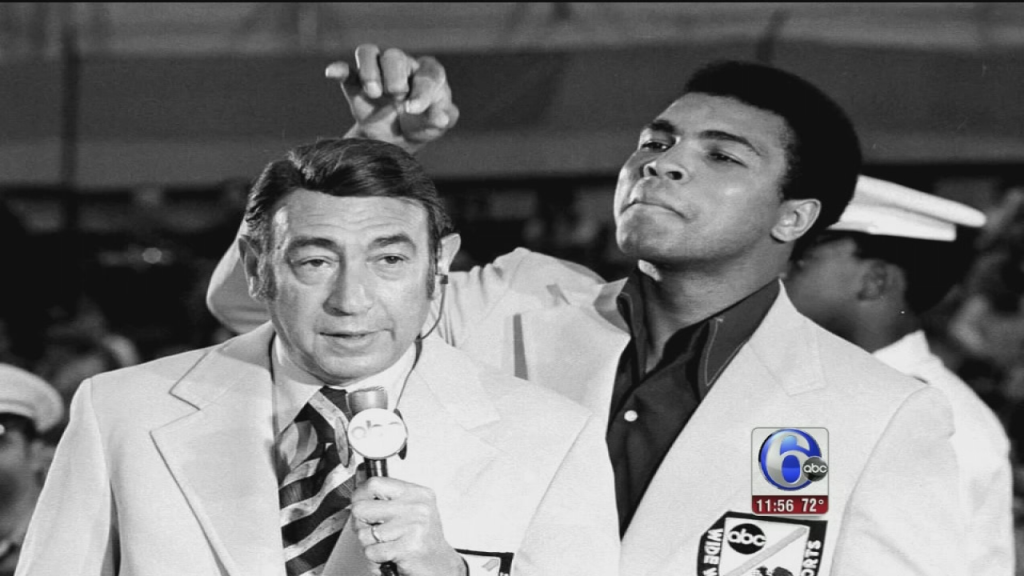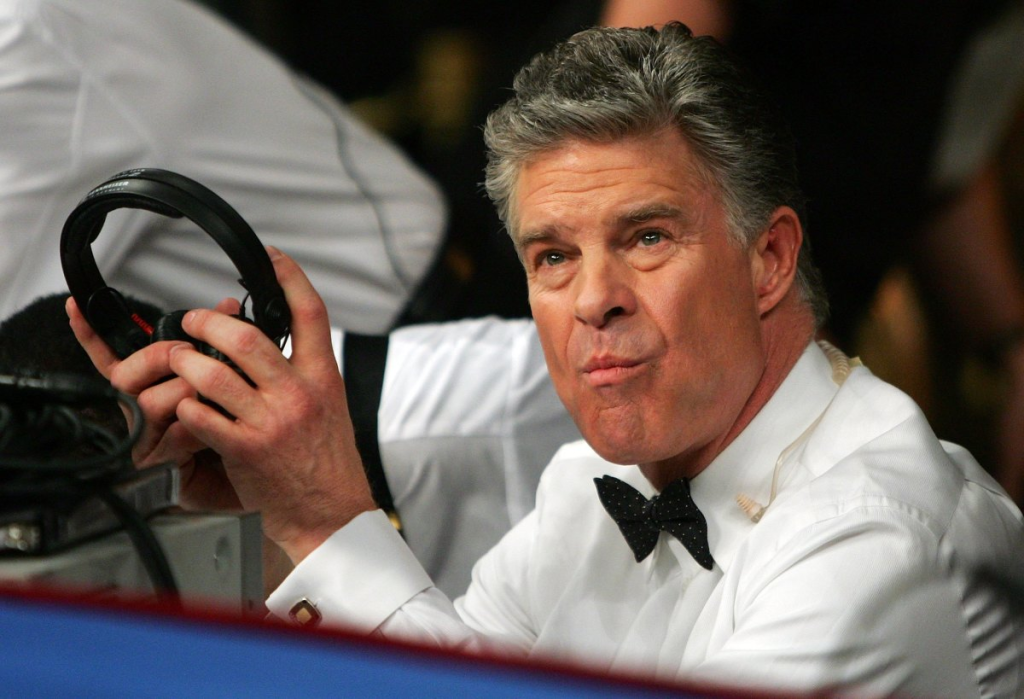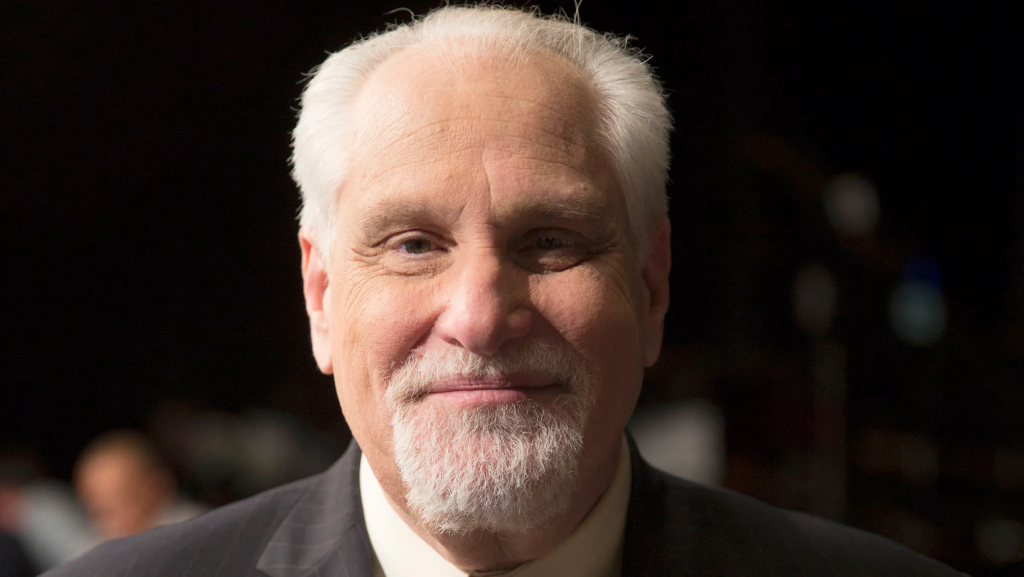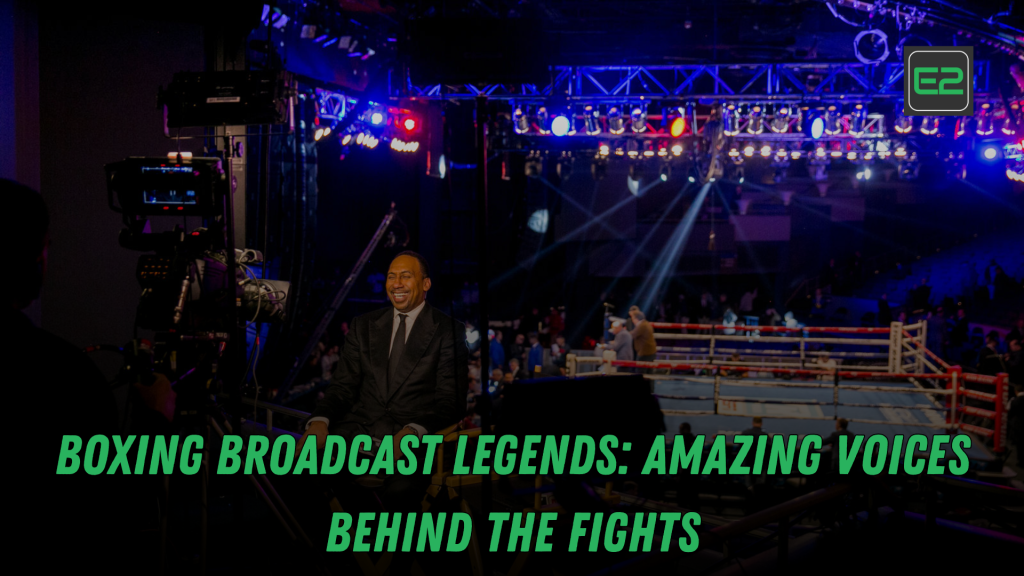Broadcast: In the world of boxing, the action in the ring is only part of the spectacle. The voices that narrate the fights, bring the drama to life, and give the audience an inside look into the tactics and tension of each match are equally crucial. These legendary broadcasters have made boxing more than just a sport—they’ve transformed it into an unforgettable experience for millions of fans worldwide. This article dives into the iconic voices behind some of the biggest boxing moments in history, showcasing how they’ve shaped the sport and the audience’s love for it.
Table of Contents
1. The Power of a Great Broadcast in Boxing
Boxing is one of the most thrilling sports to watch, where every punch, movement, and strategy is loaded with intensity. However, it’s the broadcasters who add the context, build the excitement, and give viewers the narrative they need to truly appreciate what’s happening in the ring. Legendary boxing broadcasters have the ability to elevate the drama, making each round seem like a crucial moment in the history of the sport.
A great commentator’s voice has the power to transform a fight from just another sporting event into a pulse-pounding, edge-of-your-seat experience. Their words bring clarity, context, and emotion to the action, allowing fans to connect with the athletes and the story being told in the ring.
2. The Hall of Fame Broadcasters: Icons in Boxing Commentary
Some of the most iconic figures in boxing have made their mark as broadcasters. These voices have become inseparable from the sport itself, and their commentary is often remembered as much as the fights they narrated.
2.1. Howard Cosell: The Voice That Defined a Generation
Howard Cosell is often regarded as the face of boxing commentary during the 1970s. His distinctive voice and no-nonsense approach to commentary helped bring boxing into the mainstream. His partnership with legendary boxers like Muhammad Ali and George Foreman created some of the most memorable moments in boxing history.
Cosell’s ability to capture the drama of a fight was unparalleled. His iconic call during the Ali-Frazier fight in 1971 and his commentary during the Rumble in the Jungle are legendary. He didn’t just call the punches—he told the story of the fighters, their backgrounds, and their motivations, which allowed viewers to feel connected to the action.

2.2. Jim Lampley: The Voice of HBO Boxing
Jim Lampley’s name is synonymous with HBO Boxing, where he spent over three decades calling some of the greatest fights in boxing history. Known for his dramatic flair and deep knowledge of the sport, Lampley helped elevate the status of HBO’s boxing broadcasts.
Lampley was known for his energetic, sometimes poetic delivery, bringing a cinematic quality to every broadcast. He was the voice behind iconic bouts like Floyd Mayweather vs. Manny Pacquiao and the Roy Jones Jr. era. His professionalism, coupled with his ability to capture the essence of a fight, made him a beloved figure in boxing.

2.3. Al Bernstein: The Analytical Genius
Al Bernstein is one of boxing’s most respected commentators, known for his in-depth analysis and insightful observations. A former boxer himself, Bernstein’s expertise in the sport adds credibility to his broadcasts. He’s been a staple of Showtime Boxing and has called some of the biggest fights of the past few decades, including bouts featuring Mike Tyson, Sugar Ray Leonard, and De La Hoya.
Bernstein’s ability to break down the technical aspects of a fight, without overwhelming the casual viewer, is one of his strongest attributes. His clear explanations of the fighters’ strategies and techniques have made him a fan favorite.

2.4. Bob Sheridan: The “Voice of the Fight“
Bob Sheridan, known as the “Voice of the Fight,” is another legendary commentator who left an indelible mark on boxing broadcasting. With over 40 years in the business, Sheridan called fights for USA Network and Showtime, becoming a fixture in the industry.
His high-energy style, which included dramatic flourishes and unique catchphrases, endeared him to fans around the world. Sheridan’s ability to capture the suspense of each round while maintaining a deep connection to the fighters’ emotions made his broadcasts unforgettable. He was especially known for his calls during fights involving Mike Tyson, where his voice became synonymous with Tyson’s devastating knockout victories.

3. The Impact of Great Boxing Commentary on the Audience
Boxing commentary serves not only as a way to inform viewers about the technical aspects of the sport but also to enhance the emotional impact of a fight. Legendary broadcasters like Cosell, Lampley, and Bernstein used their voices to create moments that went beyond just reporting the action. Here’s how their commentary shaped the sport:
3.1. Creating Drama and Anticipation
The best boxing commentators know how to build anticipation. They can turn a regular fight into a dramatic spectacle, ensuring that every punch feels like it’s leading to something monumental. Cosell’s famous line, “Down goes Frazier! Down goes Frazier!” is one of the most quoted calls in sports history, encapsulating the thrill and drama of boxing in a single sentence.
3.2. Providing Insight and Clarity
In the world of boxing, there’s often much more happening than meets the eye. The best commentators provide crucial context, explaining tactics, strategies, and the significance of key moments. For fans new to the sport, this explanation is invaluable, allowing them to appreciate the nuance behind each punch.
Training Regimens of Top Filipino Fighters: Inside Their Amazing Winning Workouts
3.3. Making History Feel Personal
The voice behind a fight can also give it a sense of personal significance. When a commentator connects the fighter’s journey to the moment in the ring, it helps the audience feel emotionally invested in the outcome. Whether it’s a long-awaited comeback or a career-defining moment, the broadcaster’s voice is integral in turning a fight into a story.
4. The Evolution of Boxing Broadcasting
As technology advances, so too does the way boxing is broadcast. From radio to television, and now to streaming platforms, boxing commentary has evolved in tandem with media. These changes have allowed boxing fans to experience the sport in new and exciting ways, whether it’s through multi-camera angles, interactive features, or live commentary on social media.
With digital platforms now offering boxing broadcasts, commentators have adapted by incorporating social media and real-time analytics into their broadcasts, keeping fans more engaged than ever.
5.The Enduring Legacy of Boxing Broadcast Legends
The voices behind boxing broadcasts are far more than just narrators of the action; they are storytellers who turn a fight into a memorable event. From Howard Cosell’s dramatic flair to Jim Lampley’s authoritative presence, these commentators have shaped how we view the sport and have helped boxing reach new heights of popularity.
As the sport continues to evolve, the role of broadcasters will remain as important as ever. The great boxing legends may have hung up their gloves, but the voices behind the fights will continue to inspire and captivate boxing fans for generations to come.
Frequently Asked Questions (FAQ’s)
1. Why is boxing commentary so important to the sport?
Boxing commentary provides context, builds excitement, and enhances the drama of a fight, allowing fans to appreciate the finer details of the sport.
2. Who is the most famous boxing commentator?
Howard Cosell is often regarded as one of the most famous boxing commentators due to his partnership with Muhammad Ali and his iconic calls during major fights.
3. What makes a great boxing commentator?
A great boxing commentator has the ability to explain the action clearly, provide insights into the fighters’ strategies, and create an emotional connection with the audience.
4. How has technology changed boxing broadcasts?
Advancements in technology have led to more immersive broadcasts, with features like multiple camera angles, real-time statistics, and social media interaction enriching the viewer experience.
5. What impact do boxing commentators have on the sport’s popularity?
Boxing commentators help increase the sport’s visibility by narrating memorable moments, educating fans, and making each fight feel like a unique and important event in boxing history.
6. In boxing evolution, are the boxing broadcasters the most significant part of every match?
As the sport continues to evolve, the role of broadcasters will remain as important as ever.
